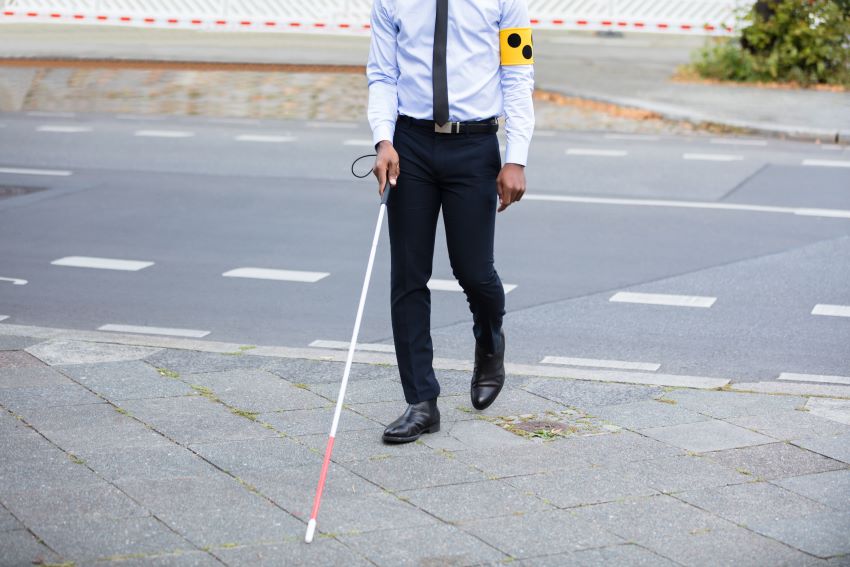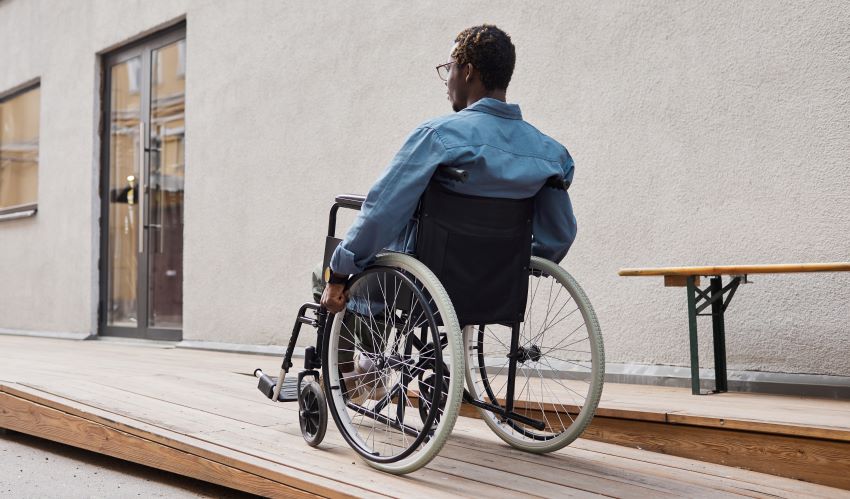
Government has been lauded for having the foresight to develop the first-ever draft policy aimed at improving the lives of persons with disabilities in Barbados.
This commendation came from Professor of Management and Organisational Behaviour, The Sagicor Cave Hill School of Business and Management, The University of the West Indies, Cave Hill Campus, Dr. Dwayne Devonish. He was addressing the first town hall meeting at the Deighton Griffith Secondary School, Kingsland, Christ Church, last month.
Dr. Devonish, who is responsible for drafting the national policy document, stressed its completion was “something that we (Barbadians) should really pat ourselves on the back for”.
Prior to summarising the contents of the document, he said the ongoing consultation was important to harness the views of Barbadians. He stressed: “Really, the larger part of this and the more important part of the consultation would be their inputs, recommendations and suggestions for the policy document. What you would like to see additional, or perhaps subtracted from this document that will be obviously fitted to your needs.”
He pointed out that the policy document speaks to persons with disabilities as a diverse group, rather than a singular group and this was one of the guiding assumptions when it comes to any policy for persons with disabilities.
The Professor noted: “We are not creating policies that are umbrella, one-size fits all policy documents or initiatives. We are recognising that there are different types of disabilities. There are persons who may very well have invisible and multiple disabilities [and] so this policy is multifaceted; it is inclusive and accommodating.”
“We are not creating policies that are umbrella, one-size fits all policy documents or initiatives. We are recognising that there are different types of disabilities. There are persons who may very well have invisible and multiple disabilities [and] so this policy is multifaceted; it is inclusive and accommodating.”
Professor of Management and Organisational Behaviour, Dr. Dwayne Devonish
The draft policy contains 13 pillars with each possessing an overarching goal, which Government will seek to achieve for persons with disabilities. They are: Accessibility; Adequate Standard of Living and Social Protection; Awareness Building; Education, Training and Lifelong Learning; Employment, Work and Economic Participation; Health, Habilitation and Rehabilitation; Legal Recognition and Access To Justice; Participation in Society; Protection in Disasters and Emergencies; Protection of Right To Life, Integrity, Freedoms and Liberties; Regional and International Cooperation; Respect For Privacy, Home and Family Life; and Women and Children with Disabilities.

Addressing the goal of Pillar 1 – Accessibility, Dr. Devonish said it spoke to facilitative access to the built environment and its recommendations were very clear about improving physical accessibility across the range of physical infrastructure in Barbados.
“This includes roads, roadways, outdoor and indoor facilities in both public state-owned buildings and private sector spaces. We have identified and are seeking to eliminate key obstacles and barriers to physical accessibilities through the implementation of general universal design features within and outside public spaces,” he explained.
He added that it also took into account the provision of ramps for access to wheel chairs and related mobility devices offering visual and auditory systems.
“Prompts for those who are visually impaired, blind, hard of hearing, and deaf, enabling accessibility features within customer interfacing systems, like ATM systems, other types of machines and equipment that persons with disabilities would normally come into contact with,” said the professor.
Another key component to accessibility was outlined as access to housing and other forms of accommodation. Noting that clear recommendations had been made in this respect, Mr. Devonish stressed the aim was to promote and mandate best practice accessibility standards in the development and management of housing and other accommodations to better meet the needs of persons with disabilities.
Explaining further, he said: “So, it is not just that we have a housing project and we allocate a percentage, but we recognise that even in the design of those housing and other forms of the design that they are fit for purpose and that they are inclusive and accommodate the various needs of not just those with mobility-related disabilities, but other forms of disabilities.”
With respect to the second pillar, Adequate Standard of Living and Social Protection, the professor said: “When we talk about standard of living we are saying that we need to enhance and expand our key social and essential services – those services provided currently under the National Disabilities Unit and the Ministry proper. We are saying that we need to ramp up, to respond better with these services to the needs of persons with disabilities.”

Emphasising that some services needed to be ramped up such as the Poverty Alleviation Programme and programmes across the board for the elderly and for youth, Dr. Devonish noted that some would also have to be repackaged to support those who are in dire circumstances.
“The National Assistance [Board] grants, Welfare Department, all of these agencies have to work together in proper unison to ensure that the services that we deliver are not just the best quality but that they are efficiently done,” he said, stressing there was no need to operate in silos but to “have better integration” in terms of how various populations are serviced.
The audience also heard that care givers needed to be supported, especially those not equipped with the knowledge, technical and financial resources to adequately take care of persons who are severely impaired.
Dr. Devonish disclosed that the policy was articulating that there be ‘care givers of persons with disabilities’ support programmes’, coordinated through the Ministry, with non-governmental organisations and the private sector, to provide financial, technical, and physical educational training, among other things.
“So, it is about creating that buffer of support for this vital and essential group of care givers. What we are saying is that within this particular programme, you should be able to access certain resources that you lack, from the Ministry and other stakeholder groups. When we support caregivers we are supporting persons with disabilities in the same way,” he noted.
